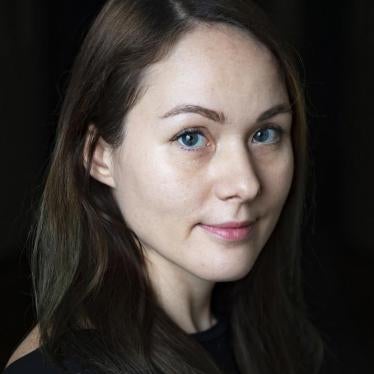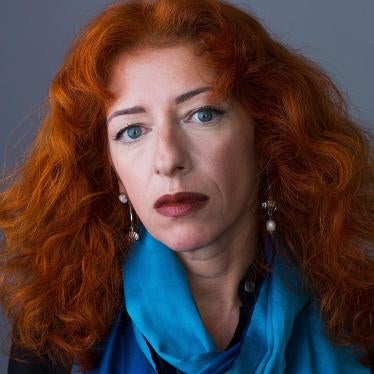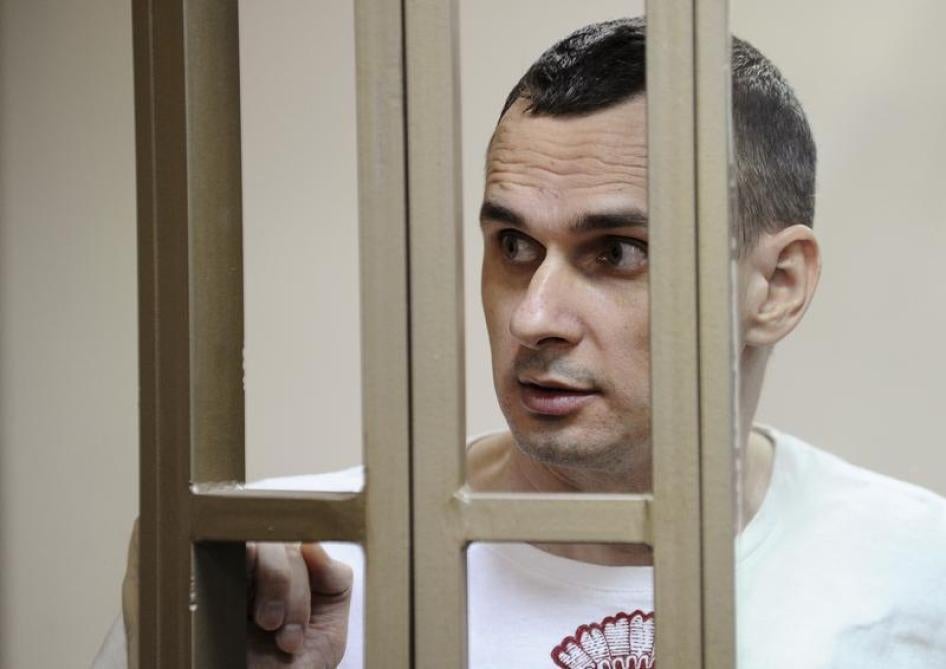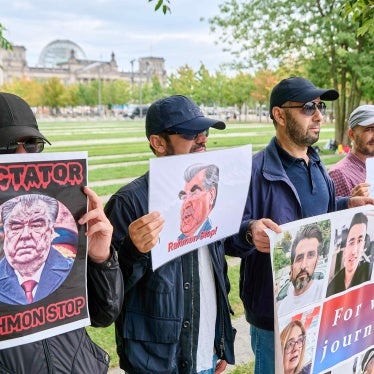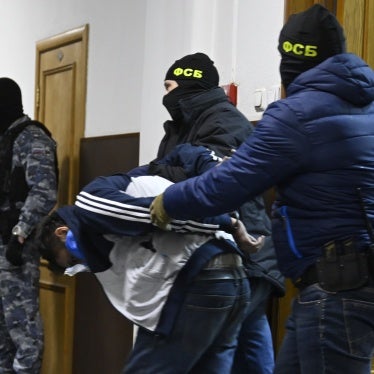A Russian military court has just sentenced a Ukrainian filmmaker from Crimea, Oleg Sentsov, to 20 years in jail for supposedly running a “terrorist organization.” His alleged accomplice, Crimean activist Olexander Kolchenko, received a 10-year term for his role in an alleged “terrorist” attack and participation in a “terrorist organization.”
It’s clear the case against Sentsov lacked foundation and was politically motivated, while the charges of “terrorism” against Kolchenko – who admitted to a role in an arson attack – are wholly disproportionate. The trial and the conviction of the two men highlight the manipulation of justice that is becoming disturbingly common in Russia today.
The “terrorist organization” that Sentsov allegedly ran carried out two arson attacks in Crimea in April 2014 – one on the offices of the Russian Community in Crimea association, and another at the headquarters of the pro-Kremlin United Russia Party in Simferopol. No one was injured in either attack.
Kolchenko admitted to taking part in the arson attack on the United Russia office but disputed that it was an act of terrorism. Sentsov denied all charges.
When Russia occupied Crimea in spring of 2014, Sentsov spoke out against the occupation and helped to evacuate stranded Ukrainian soldiers from military bases in Crimea. During his trial prosecutors provided no evidence of his personal involvement in the arson attacks, and the charges of him running a terrorist organization were based solely on testimony from two other alleged members of the group. But one of them, Gennady Afanasyev, withdrew his testimony toward the end of Sentsov’s trial, saying it had been extracted under torture. In court, Afanasyev described how Russian security service officials viciously beat him during interrogations, suffocated him with a gas mask, stripped him naked, and threatened him with rape to force him to testify against Sentsov. Nobody has investigated these allegations.
Neither have Russian officials properly investigated Sentsov’s complaints about cruel and degrading treatment in custody. According to media reports, prosecutors incredulously argued that Sentsov’s visible wounds were the result of a long-standing involvement in sadomasochistic sexual practices.
The trial of Sentsov and Kolchenko attracted global attention. Memorial, a leading Russian human rights group, declared Sentsov to be a political prisoner and has demanded his immediate release.
Since the Russian occupation of Crimea, Russian authorities have been quick to silence those who oppose their actions there – be they Crimean Tatars, pro-Ukraine activists, or Moscow-based independent advocates. But this latest case, and the terribly harsh sentences for Sentsov and Kolchenko, are the starkest warning yet to Russia’s critics in Crimea: keep quiet or else.
